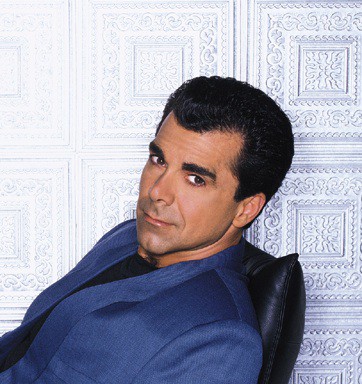
It was a shocking moment for TV news as CNN correspondent Sanjay Gupta took over the make-shift Haitian hospital after doctors were ordered to leave for security reasons. For a moment, the news and the rescue effort became one. Those of us who watched, glued to our screens, got a rare glimpse of disaster relief work. Because of this and other media reports on the 2010 Haiti earthquake, many of us decided we needed to pitch in to help Haiti pick up the pieces.
But Sean Christensen, a Professor at the Institut Biblique Lumière in Haiti, says that even after the flurry of media reports on Haiti’s earthquake stopped, people around the world continued to give.
“Haiti’s needs are great all the time and the earthquake coverage helped people to see that,” he says.
But what about the stories that are never make it to the headlines in the first place? As believers, we are called to care for those who are down and out. But how can we do that if we don’t know they need help?
Kari Masson is an American working in Dakar, Senegal. During the rainy season this year, she volunteered as a translator for an organization called ShelterBox. With Marième Faye Sall, the First Lady of Senegal and her private charity Fondation Servir le Senegal, ShelterBox helped victims of flooding in the capital city and regions of Senegal.
“Fifteen-hundred people lost their homes, 380 families, in the Dakar region alone. It was at least twice that number in the rest of the country,” says Masson.
Masson says she wasn’t aware of any English-speaking Western media picking up on the story. The Huffington Post carried a story on the six people who died in the flooding in August, and the BBC ran an article on the political consequences of the natural disaster. Although for the most part, mainstream Western media ignored the floods in favor of bigger stories. When the rainy season began, the Olympics were just winding down, and by the time the damage was done, Hurricane Sandy was carving its own swath of destruction.
“[Americans] don’t know Senegal, they don’t come to Senegal, so there’s no reason to be concerned. It’s not somewhere close like Haiti that people maybe have been to before. It’s not somewhere that people can pin on a map,” Masson explains.
Maybe flooding in Senegal doesn’t matter so much to America’s trade and foreign policy, but it mattered to Masson and her friends from ShelterBox, along with other aid organizations in Senegal. But how many more would have been willing to help if they have only known help was needed?
I am a journalist, but ever since I was a kid growing up in Africa, I’ve been an activist first and foremost. Because of this, I’ve always struggled with my profession’s unreliable coverage of the developing world.
When I was in journalism school, I wrote a letter to the Africa correspondent of my favorite newspaper criticizing its lack of coverage of African news.
Just one day later, I got my response. Media organizations have to make money by selling not only the stories that are important, but the stories people will read, he replied. If a story doesn’t have wider significance outside of its region, or bigger news eclipses it, it doesn’t get covered. Journalists can’t be at all places, all the time, and neither can their budget. And when there is trouble at home, like Hurricane Sandy or the Sandy Hook shooting, almost everything else gets thrown out or squeezed into the back print pages or the leftover broadcast minutes to make space for information on the crisis at hand.
It’s difficult to prioritize human pain and suffering. Of course, it’s good that news outlets want to equip citizens with ways they can help close to home. But sometimes this can eclipse other crises overseas where devastation is also occurring, where many lives are also being lost, where aid is also needed.
The message I got from the reporter’s email? It’s not up to the media to find every story that matters. It’s up to us.
Here are some suggestions on how you can keep up to date with what’s happening in the world and discover ways to help, with or without seeing the crisis on the news:
Follow locals on Twitter
This is how journalists often get stories, and you can too. Look up hashtags for countries you’re trying to find information on, and you’ll usually find a wide array of bloggers, activists and everyday citizens letting you know what’s happening in their area.
Get in touch with NGOs in the area
Charities and NGOs are good resources for figuring out what’s happening on the ground, and how you can get involved in raising awareness or funds for their work, long after the camera crews have rolled out. Some great places to start are: The Red Cross (or Red Crescent), the Institute for War and Peace Reporting, Médecins Sans Frontières, Amnesty International and International Justice Mission. All of these send out regular updates on their websites and to their newsletter subscribers.
Read and watch more than one media outlet
There aren’t enough reporters per news outlet to catch every story. So check out a news site you wouldn’t normally look at, and see what other stories are out there. Don’t limit yourself to media from your home country, either. Reading news from a different culture means you get the story from a totally different perspective—which is always a good thing.
Specialize
One of Masson’s suggestions is to equip yourself for a specific kind of crisis or area. Rather than spreading yourself thin and trying to know all things about all places, do what we journalists do—specialize. Pick a specific country or region, or a specific kind of need. Maybe it’s helping victims of sex trafficking, or rebuilding after an earthquake, or agriculture for arid lands. Whatever it is, become an expert. Equip yourself to help, and then follow news and charities that are on the ground already. When a problem arises, whether it’s in the next town, or across the world, you can be ready to do your bit of good.























